Students at Brown Just Secured a Vote on Divestment. What Happens Next?
On April 30, protesters disbanded their encampment when the university pledged to vote on divestment from companies affiliated with Israel. This shows a different way of doing things.
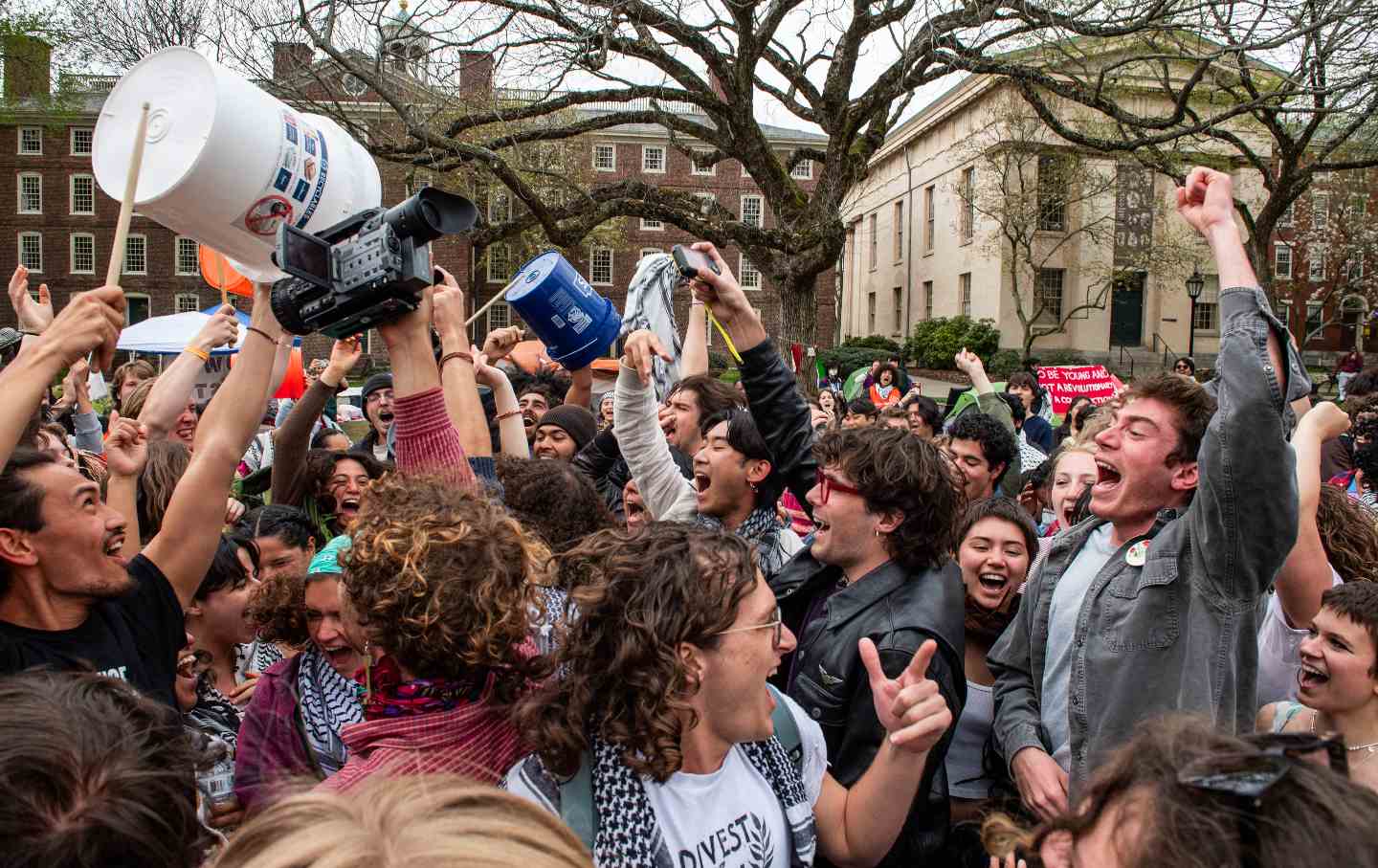
Pro-Palestinian students celebrate reaching a deal with the administration at Brown University, bringing an end to their encampment.
(Joseph Prezioso / Getty)On the same day that Columbia University called in the NYPD to arrest dozens of pro-Palestine protesters, the encampment at Brown University ended peacefully. Students successfully negotiated a deal with the administration: If the governing body agreed to vote on a proposal to divest the school’s $6.6 billion endowment from companies affiliated with Israel, protesters would leave.
The 152-hour Gaza Solidarity Encampment organized by the Brown Divest Coalition (BDC) began on April 24 with 120 students. Since Israel’s assault on Gaza began, students at Brown have also organized two sit-ins and a hunger strike, resulting in the arrest of 61 people, with dozens still facing trespassing charges because of their involvement.
Throughout these demonstrations, students’ demands have remained grounded in divestment, but Brown University’s President Christina Paxson refused to bring their proposal to the university’s highest governing body.
Instead, Paxson referred them to the institution’s Advisory Committee on University Resource Management (ACURM), the group tasked with managing Brown’s endowment. Its predecessor, the Advisory Committee on Corporate Responsibility in Investment Policies (ACCRIP), commissioned a report in 2020 that recommended “divestment from companies that facilitate the Israeli occupation of Palestinian territory.”
In a community letter from March 2021, Paxson wrote that “the recommendation to divest still does not meet the standard as stated in the committee’s charge.” She consistently rejected “calls to use our endowment as a tool for political advocacy,” saying it would be “antithetical to freedom of expression and the advancement of knowledge.” Brown maintains that it is not directly invested in weapons manufacturers and only works with investment managers “whose values are aligned with the Brown community,” according to Brown’s Chief Investment Officer Jane Dietze, yet the university claims to be unable to disclose the contents of the managers’ portfolios due to contractual confidentiality agreements.
After the recent protests, however, Paxson was willing to consider updated divestment recommendations from ACURM if the students submitted a proposal to the committee. They refused to do so, citing the urgency of the situation in Gaza. In an interview with The Brown Daily Herald, Paxson also promised to request expedited committee consideration should the students submit a report.
On Monday, Paxson offered students the opportunity to present a divestment proposal to the corporation in May, but said that it wouldn’t be voted on nor be on the agenda. In response, student representatives continued to call on administrators to officially bring their proposal to the full corporation, which has final say over the management of the endowment. And on Tuesday, administrators agreed to do just that.
“Today we’re seeing the results of negotiations that didn’t seem possible even a week ago,” said Rafi Ash, a sophomore at Brown and participant in the encampment. “Not only did we force the administrators to come to the table, but we also forced them into accepting a really historic vote,” he said. The agreement to disband the encampment was signed by four student representatives from BDC along with Brown’s Vice President for Student Life Eric Estes and Vice President for Planning and Policy Russell Carey.
The result of the negotiations have “energized a lot of people,” said Ash, and several members of Brown’s corporation have already expressed support for divestment to student organizers during private conversations. “We now have five months to get those votes on the corporation.”
Arman Deendar, another encampment participant, said that they would continue reaching out to corporation members to garner support while also hosting educational events to teach students “about what divestment is and what it means on this campus.”
According to a March poll from The Brown Daily Herald, over two-thirds of students already support divestment. “We need to show the administration that any opposition is outnumbered and that we really have such a democratic demand and that this is a mass movement that holds the University accountable,” said Deendar.
As part of the administration’s agreement, students will present a preliminary divestment proposal in May to a subset of the corporation, including the chancellor and the chair of the investment committee. Their proposal—which is an expansion on the 2020 ACCRIP report—will also be submitted to ACURM, who will provide guidance to Paxson prior to the October vote.
In a community-wide letter, Paxson wrote that she hopes “the meeting between the students and Corporation members will allow for a full and frank exchange of views.” BDC called the decision a “victory” and “campaign milestone” in a press release, but added that “the fight for divestment is by no means complete,” as the corporation must still approve any divestment proposal before it is carried out by Brown’s investment office.
“What we showed is that even when you reach the negotiating table, the pressure has to stay on,” Ash said. “The only way which we leave with satisfactory victories is to keep that pressure on and show the university that they do not hold all the cards and that they must be held to account by their student body.”
Popular
“swipe left below to view more authors”Swipe →“As the violence in Gaza only escalates, that push for divestment, the fight for this movement will only grow,” Deendar said. “If our encampment shows anything, it’s that this is effective in getting people in positions of power to listen to student demands.”
Your support makes stories like this possible
From Minneapolis to Venezuela, from Gaza to Washington, DC, this is a time of staggering chaos, cruelty, and violence.
Unlike other publications that parrot the views of authoritarians, billionaires, and corporations, The Nation publishes stories that hold the powerful to account and center the communities too often denied a voice in the national media—stories like the one you’ve just read.
Each day, our journalism cuts through lies and distortions, contextualizes the developments reshaping politics around the globe, and advances progressive ideas that oxygenate our movements and instigate change in the halls of power.
This independent journalism is only possible with the support of our readers. If you want to see more urgent coverage like this, please donate to The Nation today.
More from The Nation

Surveilled on Your Own Campus Surveilled on Your Own Campus
Universities across the country have used extraordinary measures to target student activists following more than two years of pro-Palestinian protests.
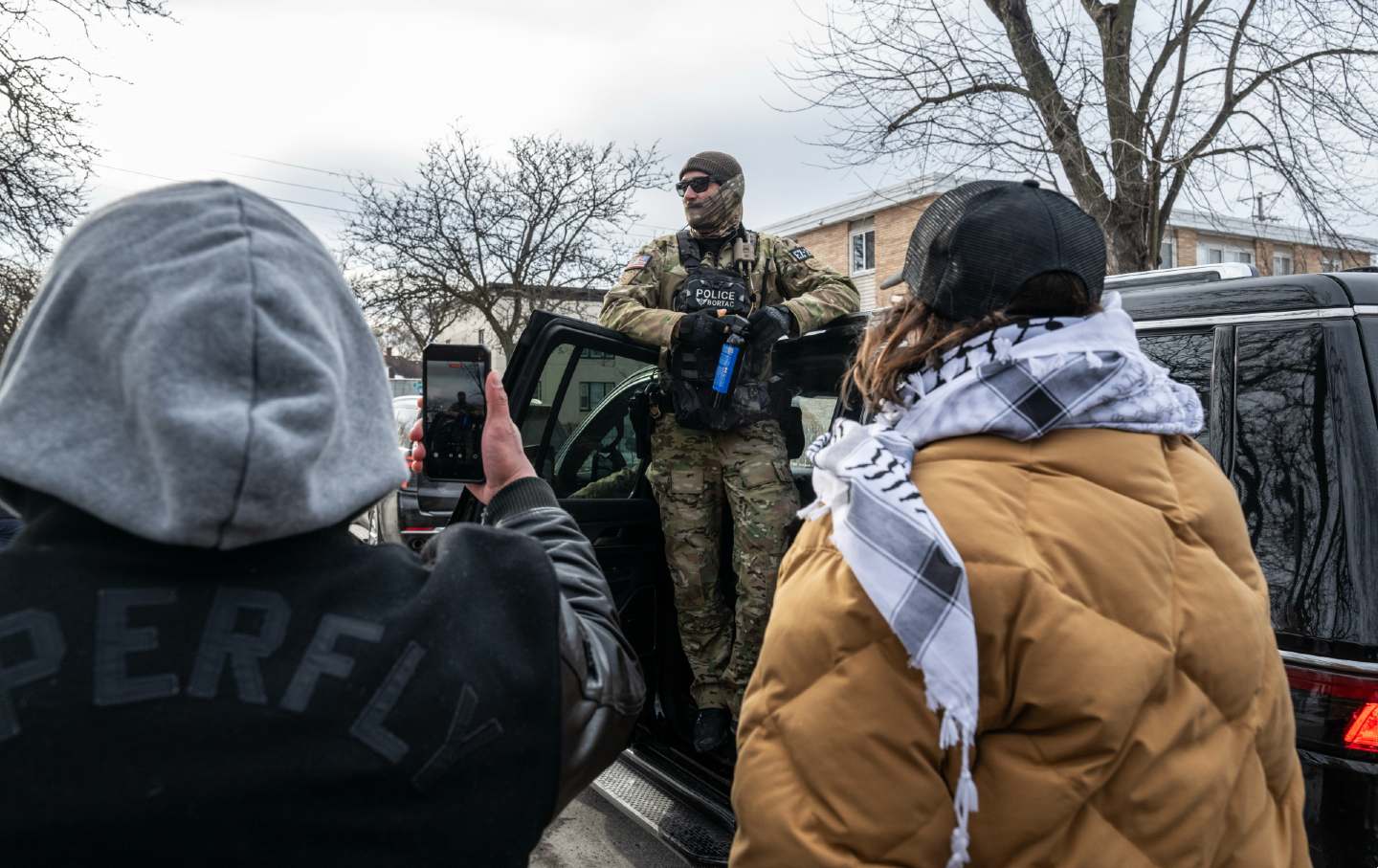
Citizen Journalists Are Minneapolis’s Unsung Heroes Citizen Journalists Are Minneapolis’s Unsung Heroes
Without their videos of ICE shootings, we wouldn’t know what is really happening.
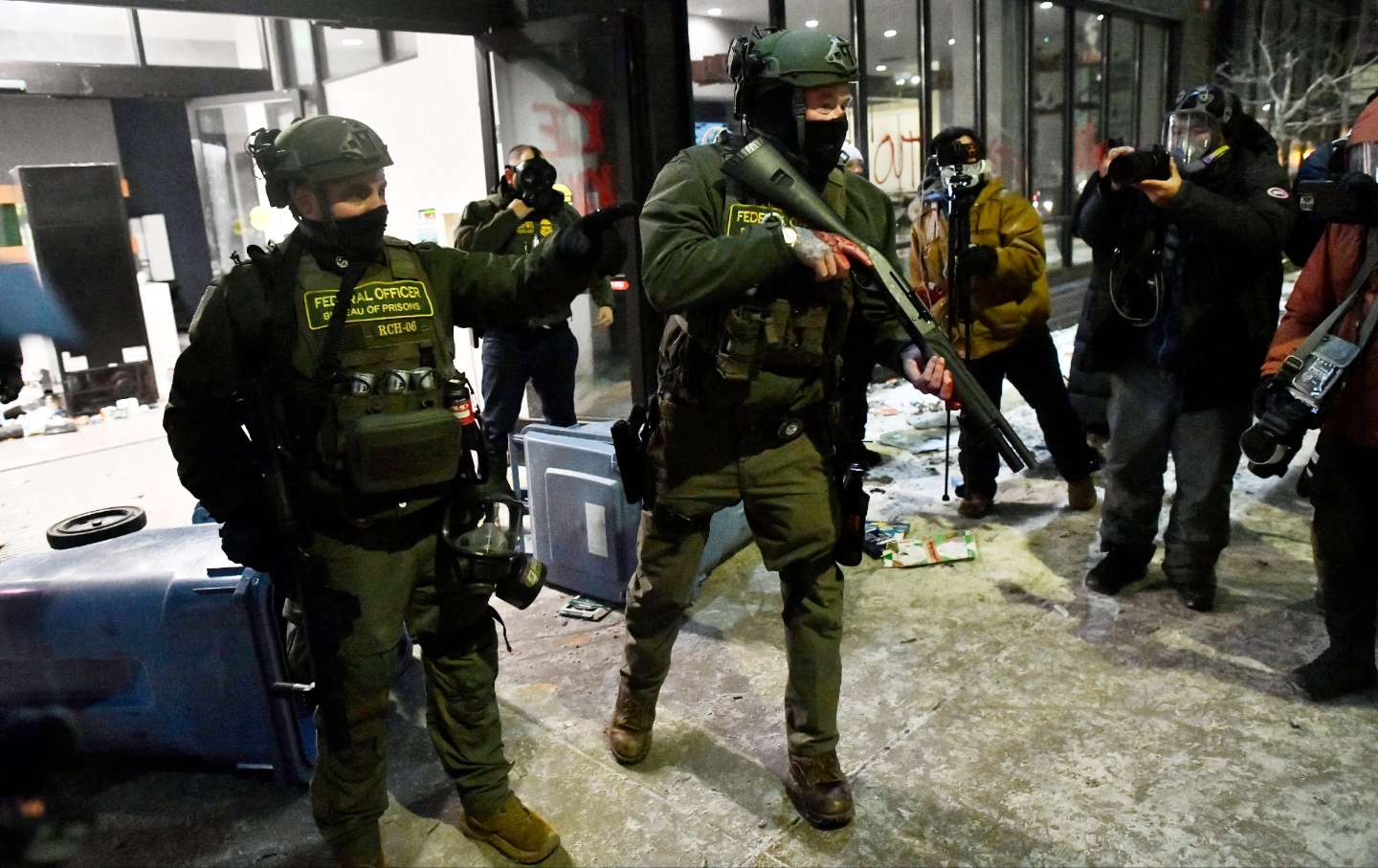
Occupied Minnesota Occupied Minnesota
Minneapolis right now reminds me of what I’ve seen during my time in the West Bank.
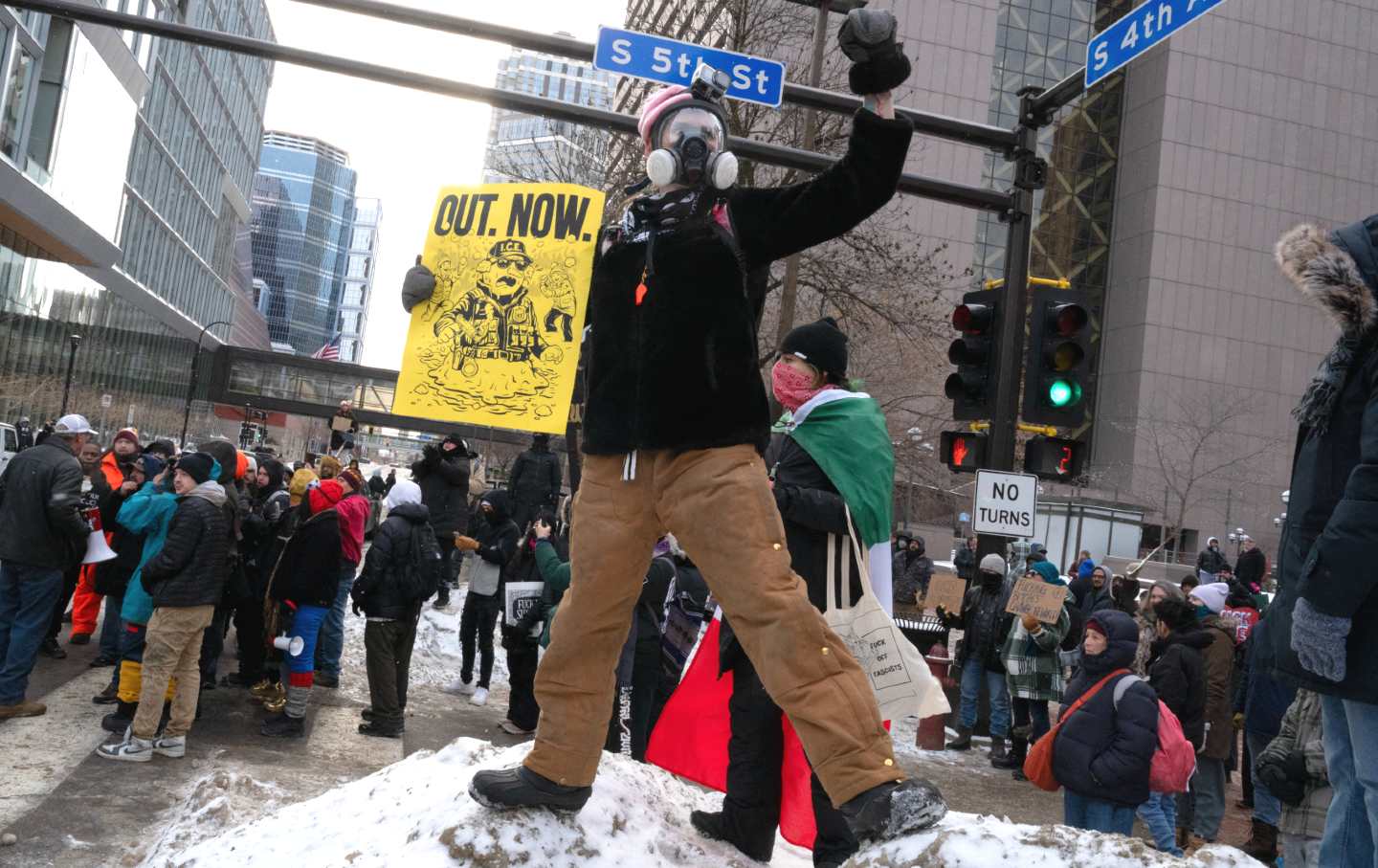
The People Are Winning the Battle Against ICE The People Are Winning the Battle Against ICE
The brave protesters in Minneapolis are doing everything that Democrats and even the law have failed to do.
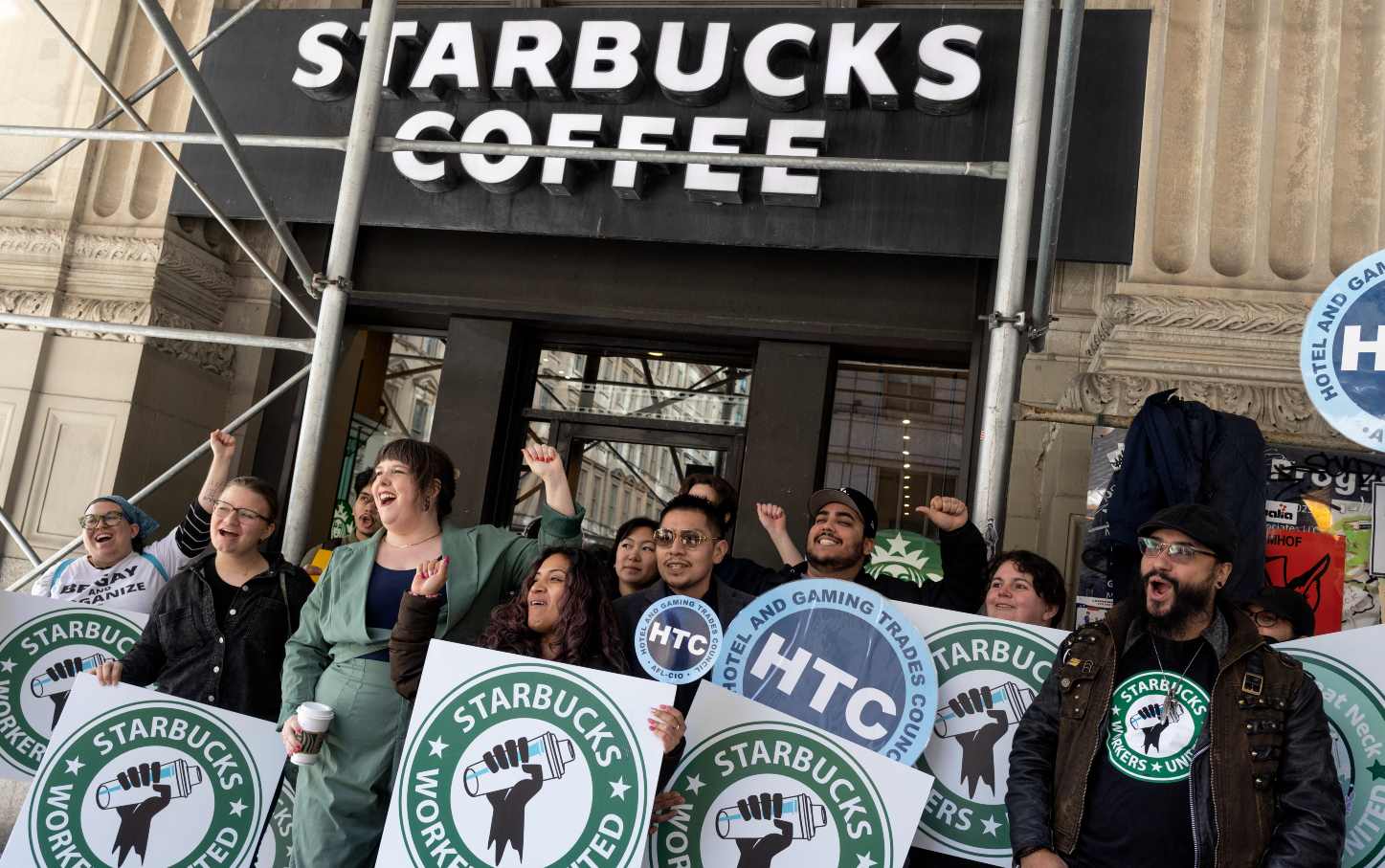
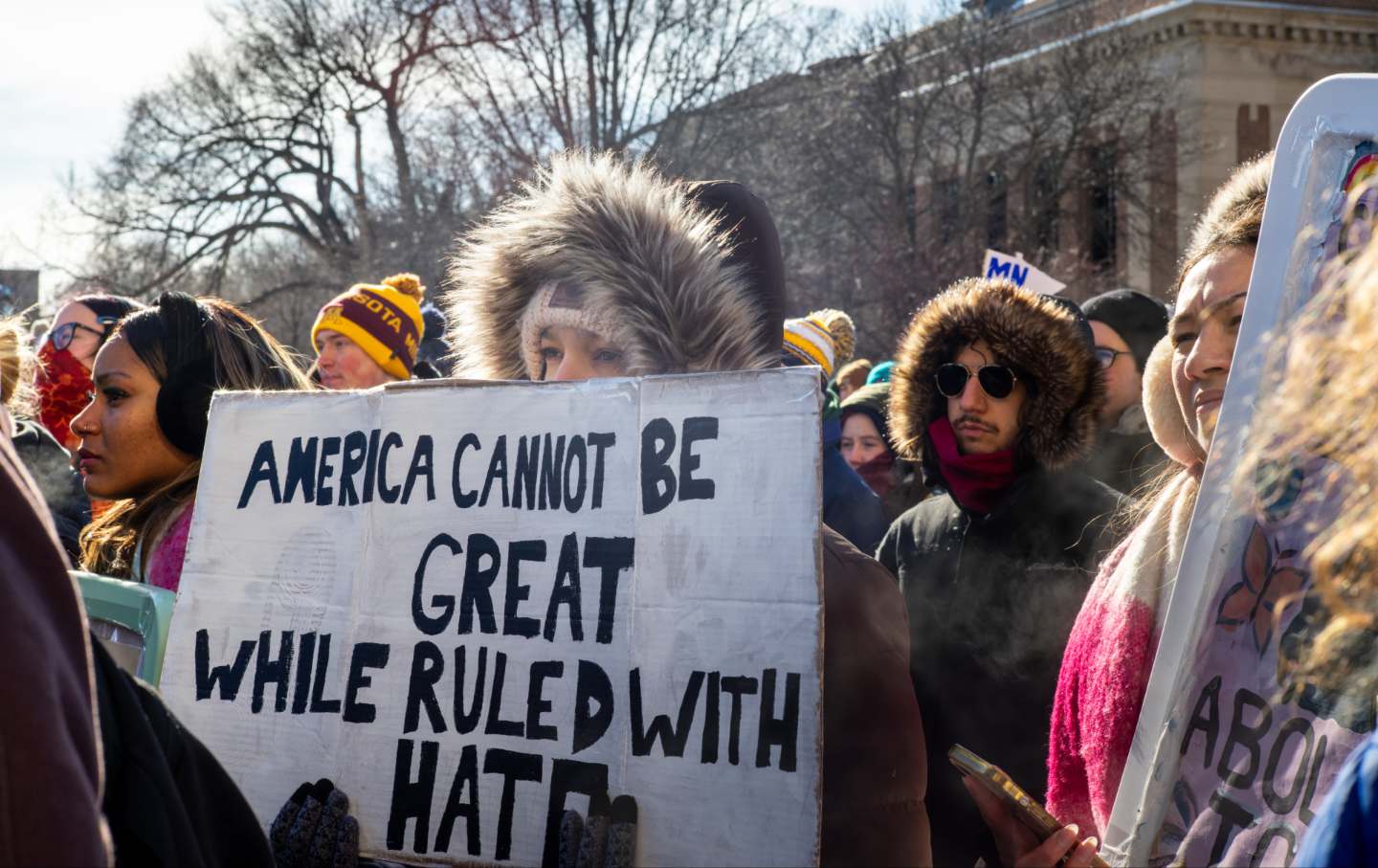
“The Nation” Nominates Minneapolis for the Nobel Peace Prize “The Nation” Nominates Minneapolis for the Nobel Peace Prize
With their resistance to violent authoritarianism, the people of Minneapolis have renewed the spirit of Dr. King’s call for “the positive affirmation of peace.”


